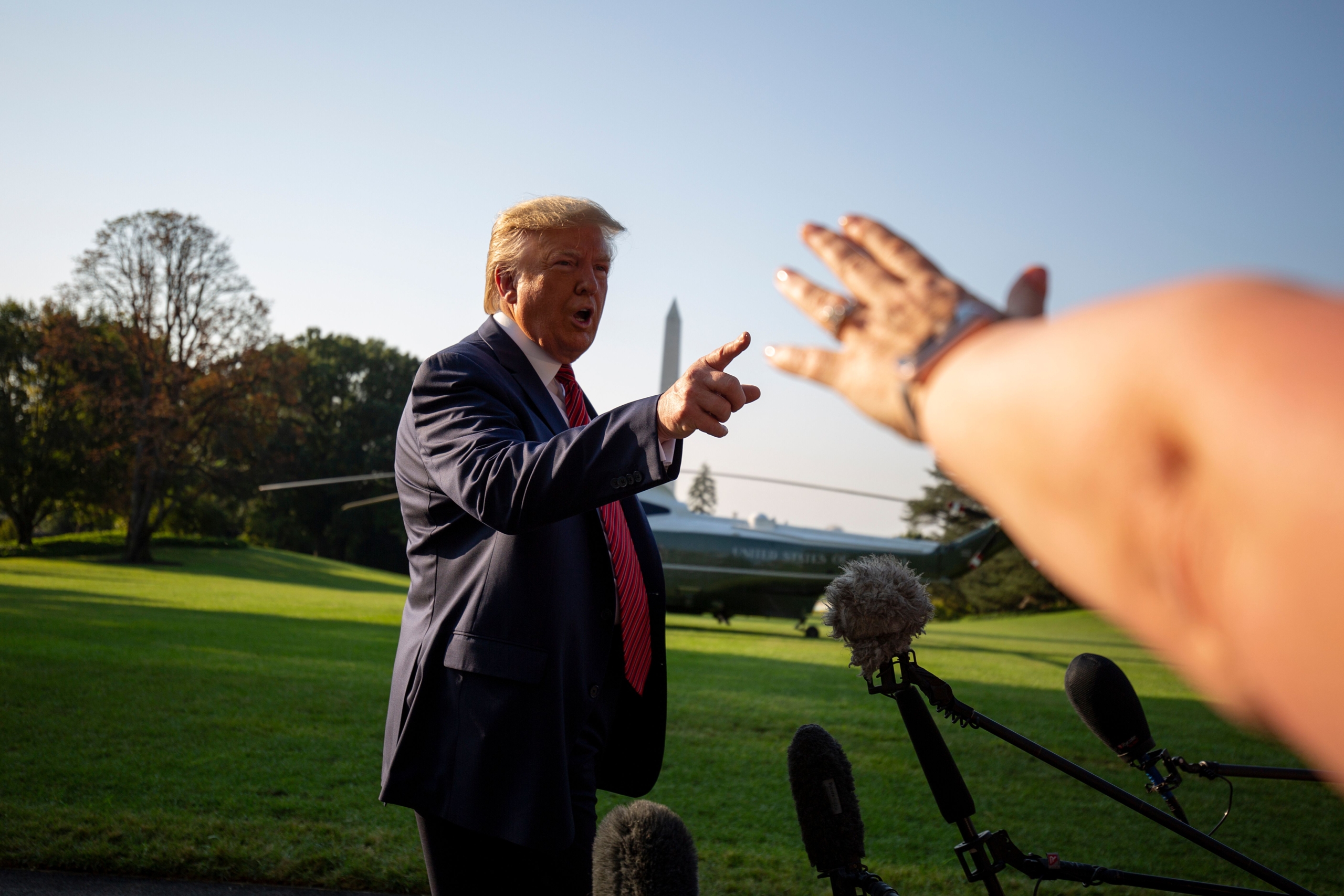Sign up for The Media Today, CJR’s daily newsletter.
Do you give Donald Trump airtime or ignore him? Fact-check him in real time or let him discredit himself? Pick apart his most noxious ideas or hope they go away?
Welcome to the central question of political journalism in 2024. And 2020. And 2016, too.
The question of how, or whether, to cover the candidacy of Donald J. Trump is among the most circular of our industry. It swings back and forth between those who say he’s newsworthy and warrants the scrutiny and those who say he shouldn’t be platformed, given his dangerous record of lies and incitement.
What’s not said, at least not enough, is that Trump will be on CNN on Wednesday night because Trump and the national media—still, despite everything we have learned—are convinced they desperately need each other. Trump, clearly, relishes the attention and the legitimacy he’ll get from being treated as a serious candidate only weeks after he was arrested and indicted in a New York courtroom. He may even enjoy the irony of appearing on CNN, a network he has long derided and threatened and undercut, as payback to Fox News, which seems to have strayed from its usual obedience and is in the middle of a meltdown following the Dominion Voting Systems verdict.
But CNN believes it needs Trump, too, and not just to jump-start a presidential-election season that proved lucrative for television in the past two cycles, though there is that. CNN also has made clear that it will use the Trump forum as evidence of its new nonpartisan bona fides.
Listen to David Zaslav, the CEO of CNN’s parent company, defending the decision to put Trump on in prime time. “We are a divided government. We need to hear both voices,” Zaslav told CNBC. “That’s what you see. Republicans are on the air on CNN, Democrats are on the air. All voices should be heard.”
Not a wildly controversial statement, but enough—when combined with the recent sacking of Don Lemon—to signal an important shift in tone at CNN, and maybe even a commercial opportunity to tack against MSNBC, its biggest rival. Chris Licht, the CNN boss, has signaled over and over again that he thinks the network is most effective when it sticks to the middle of the road. (In a speech and a piece in the Washington Post in April, Marty Baron, the paper’s former editor, hit some of the same notes, calling for a return to traditional journalistic objectivity, which prompted pushback.)
All of this marks the intensification of a battle inside journalism about how to cover a candidate and a party that have threatened American democracy. Younger journalists don’t share the caution of their bosses, and are likely to rebel.
But so far, the fight is an internal one. Ask a relative who lives outside the media bubble about “objectivity” and you’ll be met with a blank stare. We never come out looking great when we become the story. The debate can move forward only when we stop sniping at each other, and start thinking about how to connect with our audiences. What do they care about? How do we report stories that resonate with them? How can we convey the complexity and the nuance of the moment we’re in?
The answer lies not in berating CNN—one former MSNBC anchor called the network a political and journalistic “whorehouse”—nor in positioning the network in a new way in a play for ratings. The answer, instead, lies in thinking candidly and thoroughly about how to capture and convey this perilous time. What can we learn from history and from antidemocratic movements in other parts of the world? What kind of journalism has tended to move and motivate people, rather than simply enraging them? What are the stories that the American people still need to know about Trump and his rivals but have yet to read or watch?
“It’s clear to me that CNN and many other mainstream media outlets have not learned their lessons from covering Trump in 2016,” Tara Setmayer, a senior adviser to the Lincoln Project, told The Guardian in a recent piece. “It seems as though the political media cannot quit him.… It is 2016 political Groundhog Day.”
Has America ever needed a media defender more than now? Help us by joining CJR today.



